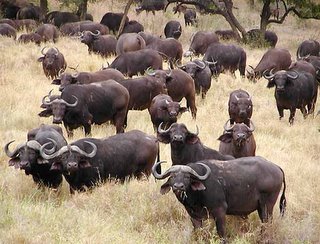
This editorial from the Graduate Dean of Business at Sungkyunkwan University in Korea brings a lot of theory all together, and then relates it correctly to the current bubble - the worldwide housing bubble.
In the end, what's happened, happening and will happen is all OK. It's just us being us. Just like when the world gets overpopulated it takes care of itself (famine, disease, earthquakes, etc), the financial world takes care of itself too - after rampant speculation, painful corrections must occur. Some will argue that that's horrible - but I will argue that it is unavoidable. It is the way of things.
Some highlights - but I recommend the full read:
I would contend that speculation is useful and beneficial in an economic system. To me, speculation means taking risks
One reason that speculation gets a bad reputation is because most people believe it leads to bubbles. A bubble is a market that goes up so dramatically that it is destined to crash at the worst, or result in prices stagnating for years at the least. Bubbles do happen: tulipmania in 17th century Holland, the South Sea bubble, the Mississippi scheme, numerous stock market crashes (the latest in March 2000), and even in gold and silver. What is it that turns normal speculation into an out-of-control frenzy? Speculators will process information correctly and set rational prices if 1), there is a diversity of analysis and opinion; 2), there is independence of opinion; and 3), there is decentralized opinion. It is when speculators cease to be independent thinkers that speculation gets out of control and bubbles form. People start buying not based upon any kind of rational analysis, but because everyone else in their peer group is buying. Price is not so important because everyone thinks they can readily sell for a higher price. This is sometimes referred to as the greater fool theory, where one assumes you can always sell to another fool. Eventually someone or many end up being the fool and buying at peak prices.
Psychologically, people take a certain amount of comfort in being part of a crowd. It's called herd behavior. One buys just because others are buying. A feedback pattern emerges, from price increases, to increased investor enthusiasm, to increased demand, and to further price increases. People simply extrapolate past price increases into the future and they will continue on an upward trend. If you don't understand why, you assume someone else does. So you join the crowd. If prices do collapse, you will feel better being part of the crowd. There are numerous other biases for investors, but the herd instinct is perhaps the major one in promoting a bubble.
But real estate prices can't exist in a vacuum. Home prices and commercial prices must have some relationships to rents and average income. Thus rents, mortgage payments, and lease rates are all tied to average incomes. In the longer term, these relationships are all self-correcting and should bring prices back in line with the growth of personal income and economic growth. Low interest rates have been one of the contributors to rising real estate prices, but even they cannot sustain rising prices against self- correcting measures in the economy.
December 01, 2005
Bubbles. Herds. Greater Fool. Speculation. We've been here before and we'll be here again - it's who we are as a people.
Posted by
blogger
at
12/01/2005
![]()
![]()
Subscribe to:
Post Comments (Atom)



No comments:
Post a Comment